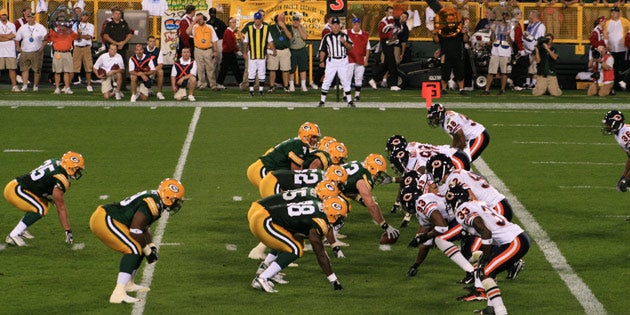America’s most popular sport may soon take a hit it can’t recover from.
College of Charleston legal studies professor argues in a paper recently accepted for publication at
the UC-Berkeley Law School, that significant market forces threaten the National Football League (NFL). He says increasing insurance costs driven by threats of lawsuits – similar to that of the NFL Players Association’s (NFLPA) for damages caused by concussions – will create changes to the current marketplace for football that could threaten the economic viability of football as currently organized.
READ: Read Birkel’s paper Knocked Out: The Once and Future Demise of Football.
“The NFL has had its problems, ranging from player domestic abuse issues to owner drug addiction,” Birkel explains. “But, the rising insurance costs are what threaten the long-term viability of organized football. It has marginalized other activities and I think we’ll see it do the same to football.”
Earlier this year, the NFL reached a settlement of more than $870 million for concussion-related brain injuries among its retired players, agreeing to compensate victims, pay for medical exams and underwrite research.
Because Birkel can’t predict the future of football, he makes his argument by creating parallels to two instances where increasing insurance costs seem to have affected popular childhood activities in the not-too-distant past: diving boards and playground equipment.
According to Birkel’s research, the number of diving boards in public pools and the number of monkey bars, seesaws, and merry-go-rounds found in public playgrounds have decreased drastically over the years. These activities brought with them higher insurance premiums due to the threat of lawsuits – much like those faced by football.
The more NFL concussions, the more lawsuits, the higher insurance premiums will be for football programs at all levels – down to the Pee Wee leagues. As a result, Birkel argues that fewer boys will participate in football programs, thus shrinking the pool of talented, experienced players from which college programs recruit, which will ultimately affect the sustainability of organized football as we know it.
“Fewer players mean fewer competitive teams and less enjoyment for participants and fans,” says Birkel. “It’s not clear whether this is a net-positive or a net-negative for business and society but it’s a conversation that needs to start before the changes to organized football are too profound to reverse.”
This article first appeared in the School of Business Faculty Research Highlights.





